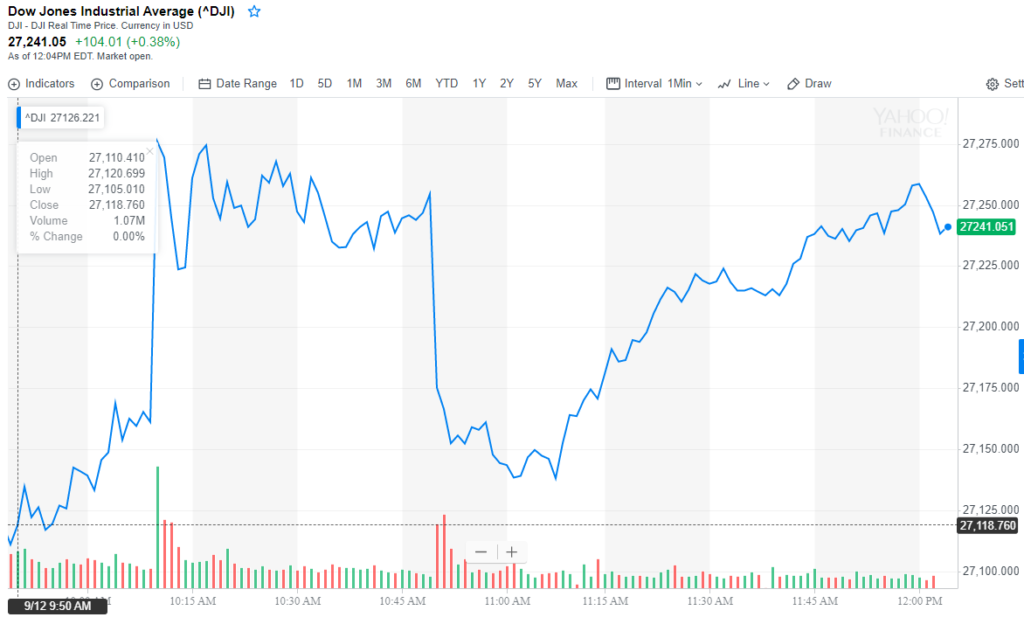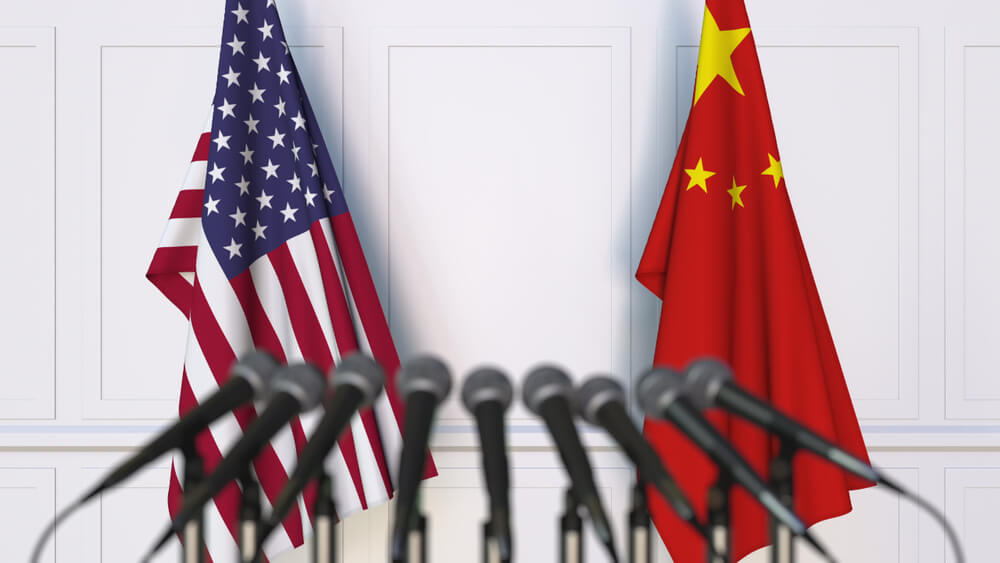Stocks pared early gains Thursday after a senior White House official told CNBC the U.S. is “absolutely not” considering a ceasefire in the ongoing trade war with China, and that there is no interim trade deal in place, refuting an earlier Bloomberg report.
Earlier Thursday, Bloomberg reported that the Trump administration was considering a limited trade deal that would delay and even remove some tariffs on Chinese imports. In exchange, Beijing would buy some U.S. agricultural products and make its first commitments to stop intellectual property theft. Bloomberg said the news came from five different White House sources familiar with the matter.
The deal reportedly would be on an interim basis and would pause the trade war rather than be a final end to the conflict — if Trump were to sign off on it.
Trump tweeted late Wednesday that he would pause the next 5% tariff hike on $250 billion worth of Chinese imports, pushing the increase from Oct. 1 to Oct. 15 as a “gesture of good will” out of respect for the 70th anniversary of the revolution that brought China’s communist government into power.
….on October 1st, we have agreed, as a gesture of good will, to move the increased Tariffs on 250 Billion Dollars worth of goods (25% to 30%), from October 1st to October 15th.
— Donald J. Trump (@realDonaldTrump) September 11, 2019
Markets shot straight up on the news, with the Dow Jones Industrial Average up 159 points, the S&P 500 up 0.2% and the Nasdaq up 0.4%.
That was, until the White House official poured cold water all over it, reportedly slamming Bloomberg’s credibility.
“It’s a work in progress,” U.S. Bank Wealth Management Chief Equity Strategist Terry Sandven told CNBC. “Both sides are posturing. The timing and magnitude of any new trade agreement remains unknown with no indication that either side is willing to concede on structural issues.”
Sandven also said the trade war will continue to make things volatile on the markets “for the foreseeable future,” but added that stocks have already had a “banner year.”
After whipsawing straight up and then straight down, markets made a steady climb back up. By lunchtime on the East Coast, the Dow had climbed back up 104 points, while the S&P 500 was up 0.4% and the Nasdaq was up 0.5%, erasing the losses.





